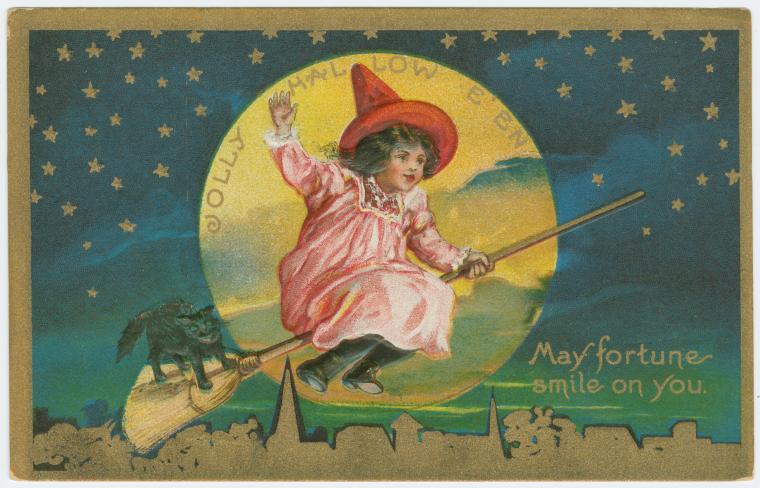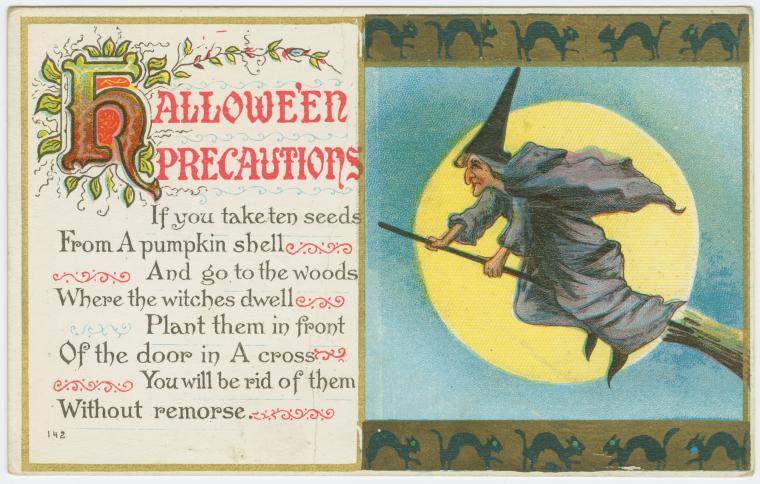
The Crucible is a play by the American playwright Arthur Miller, first performed in 1953. It tells the story of the Salem witch trials. The title refers to a container that can stand high temperatures, used to produce metal, glass, and pigments as well as other laboratory processes. Sometimes the word crucible is used to mean a severe test or a situation where forces combine to make something happen or change. So by choosing this title for his play, Arthur Miller was suggesting that the Salem witch trials were an occasion of high temperatures, but also a severe test, and a situation where change was possible. The Thammasat University Libraries own study editions of this popular play which is often staged at high schools and universities around the world. The TU Libraries also own a popular edition of the play as well as other books with the word crucible in their title, showing its importance in English language usage. For example, there is The Crucible of War, in which the word crucible means that war is a severe test. The TU Libraries also own Presidential Government: the Crucible of Leadership, a title suggesting that being president in the United States can be a situation where forces combine to cause change. Other related titles in the TU Libraries collection include Asian Crucible: the Steel Industry in China and India, referring to the use in the steel industry of containers with high temperatures to melt metals. There is also The Soviet Crucible; the Soviet System in Theory and Practice and The Dominican Republic: a Caribbean Crucible. Finally, the TU Libraries also own books with the titles The Urban Crucible: Social Change, Political Consciousness, and the Origins of the American Revolution; The Immigration Crucible: Transforming Race, Nation, and the Limits of the Law; Cradle & Crucible: History and Faith in the Middle East; and The American Crucible: Slavery, Emancipation and Human Rights.
As we see, even if the word crucible is not heard often in spoken Thai English, it appears frequently in scholarly writing. So it is worth taking a little time to become familiar with it.

In the prosecutions from the 1690s, people were accused of witchcraft in colonial Massachusetts, USA. In the historical record, several people were executed at the time for the crime of being a witch. Despite these occurrences, Salem remains a popular destination for tourists visiting Northeastern America. Salem is a coastal city located on Massachusetts’ North Shore. It is considered one of the most important seaports in Puritan American history. The Puritans were a group of English Reformed Protestants in the 1500s and 1600s who wanted to purify the Church of England. Eventually some Puritans left England and travelled to New England, hoping to find a lifestyle they approved of. They helped to establish the Massachusetts Bay Colony and other colonies. Although many would return to England, the Puritans had a lasting influence in America. Salem, Massachusetts has many attractions to interest visitors, including a neighbourhood known as Witchcraft Heights. Even today, Salem still has many exhibits and displays about the Salem witch trials of the 1600s. In the city, police cars are decorated with images of witches. The Salem High School athletic teams are named the Witches. Tourists especially enjoy visiting Salem around Halloween, with over 250,000 visitors on this weekend alone last year. Although now the subject of witches is considered an entertainment in Salem, Massachusetts, over 300 years ago, people were very worried about the subject. In general, the Witch Trials are seen as a case of too many people believing in false accusations. At the 300th anniversary of the events in 1992, a park was dedicated in Salem in memory of those unjustly accused and executed. Only in 2001 did the Massachusetts legislature officially pass a law pardoning all of those who were convicted of the crime of witchcraft. Last year, the city of Salem announced its plan to build a further memorial to the victims on the site where many were executed. In the context of this historical past, Arthur Miller chose the subject of the Salem witch trials because of its parallels with the 1950s in America. At the time, McCarthyism was fashionable. Named after the U.S. Senator Joseph McCarthy, this approach to politics was to accuse any Americans who were political opponents of not being loyal to America. Making many false accusations that did much damage to people’s lives, McCarthyism was seen by Arthur Miller and others as dangerous, in a way comparable to the Salem witch trials. Although the events were very different, Miller was pointing to the danger of false accusations. Arthur Miller often wrote about this theme, as in his novel Focus, when people begin to be impolite to a man who wears glasses. He must suddenly deal with anti-Semitism from those who think the glasses make him look Jewish. Miller travelled a lot during his lifetime, including trips to Thailand and China. In The New York Times in 1984, he wrote about the theme of false accusations as he felt it related to Thailand of several years ago:
But in the four decades since I wrote ”Focus,” new perspectives on the Jewish situation have opened up from surprising angles. In particular, the attitudes of some Asian peoples toward certain successful strangers settled in their midst, for example the Chinese in Thailand and the Vietnamese in the Cambodia of Sihanouk before the Vietnamese occupation of that country. It used to amuse me to hear descriptions in Bangkok of the local Chinese which were so exactly similar to what people used to say about Jews, and doubtless still do in the West: ”The Chinese really have only one loyalty, to one another. They are very clever, study harder in school, always try to be first in their studies. There are lots of Chinese bankers in Thailand, too many; in fact, it was a real mistake to give Chinese Thai citizenship, because they have secretly taken control of the banking system. Besides, they are spies for China, or would be in time of war. Actually, what they are after is a revolution in Thailand (despite their being bankers and capitalists), so that we would end up as dependents of China.”
For Miller, false accusations were always something to be careful about.

Thailand and Witches
In the Kingdom, a long tradition of ghosts and witchcraft have different meanings than in Salem. Massachusetts centuries ago. Two years ago, Ace of Cups, the Witch Cafe opened on Nak Niwat Road in the Lat Phrao section of Bangkok. It has been described as the world’s first witchcraft café. Its founders, Atiwan “Wine” Kongsorn and Nat Maitreemit, offer spells, rituals, and cakes matching each customers’s astrological sign. According to Nat Maitreemit, Thai witchcraft is
based on the animist belief that everything has a spirit. It relies on the power of nature, trees, forests, plants, animals, and the dead. It’s primitive. Eastern witchcraft almost always focuses on ghosts; either asking for their help or removing their resistance. There is a strong belief that ghosts play a large role in our day-to-day life and that a witch needs to figure out what spirits have come to help and which to hurt.
The owners remind potential that they have nothing to do with Harry Potter-style special effects. In 2013, Wine Kongsorn, a graduate of Srinakharinwirot University in music as well as philosophy and religion, explained to the Bangkok Post that he decided to establish the café because
My co-founders and I were waiting for a real witch shop or New Age shop to appear in the city but it never did. Sure there are shops in Thailand that sell magic stones and oils but we hadn’t found one totally devoted to Paganism and witchcraft which also had staff that could explain things to us. So when we had the opportunity and enough resources, we decided to open Ace of Cups. We all have at least 10 years’ experience in learning about Paganism and witchcraft.
Kaethy the Witch in Bangkok is another place where tea and coffee can be purchased along with advice about animism. Among academic books explaining how Buddhist and animist beliefs are changing in the modern world of the Kingdom, Ghosts of the New City: Spirits, Urbanism and the Ruins of Progress in Chiang Mai and Mediums, Monks and Amulets: Thai Popular Buddhism Today have been respectfully received by the scholarly community.

(All images courtesy of Wikimedia Commons)
